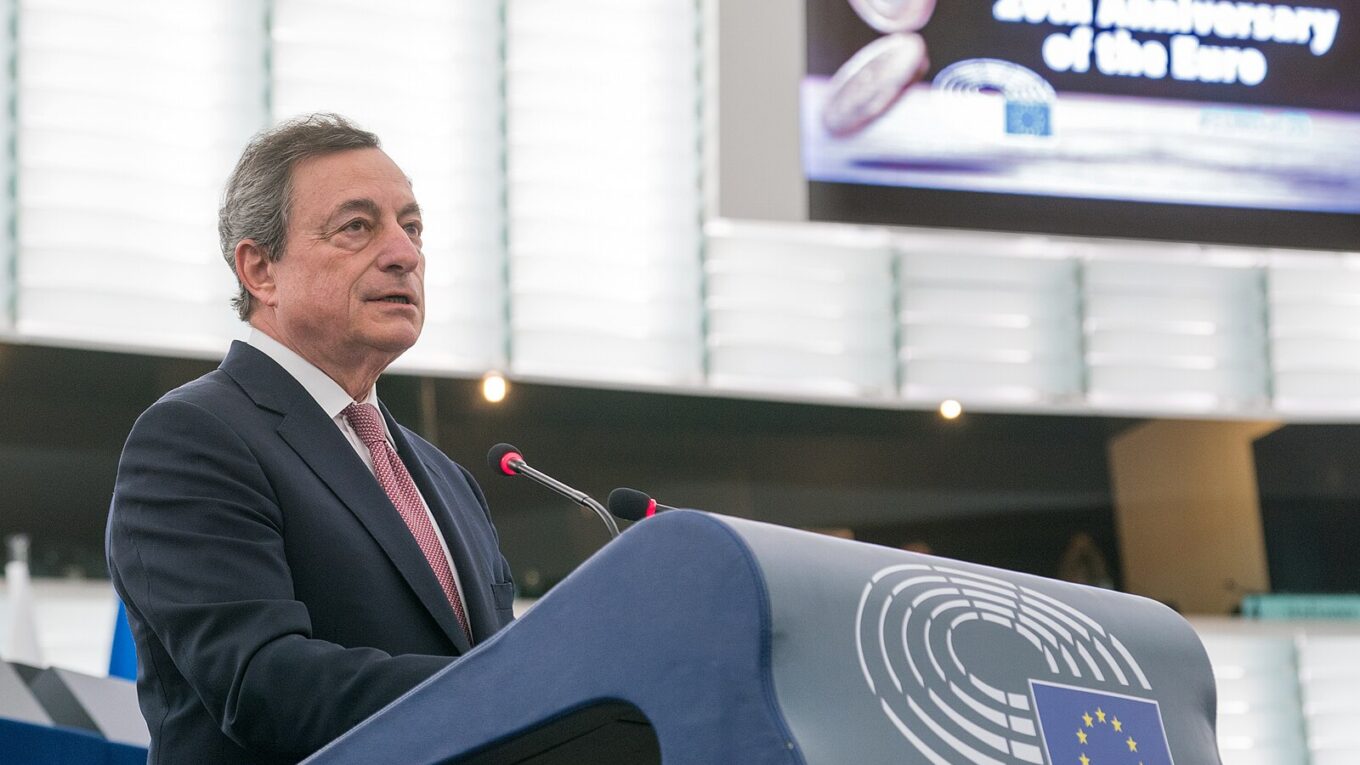Will Draghi/Letta “competitiveness” reports reshape EU tech regulation?
Forthcoming reports for the EU by two former Italian prime ministers, “Super” Mario Draghi [1] and Enrico Letta [2, 3], are likely to be very influential on the next European Commission and Parliament, and the member states. Here are some potentially far-reaching tech regulation-related comments the two Italians have made so far.
As this useful background reading from the Financial Times notes, a number of such recommendations have been ignored before due to lack of political consensus. But the geopolitical situation has been anything but normal recently, with huge economic problems revealed by the Covid crisis, Russia’s full-scale invasion of Ukraine, and a US turn towards inward-looking industrial policy and against the previous free trade approach favoured by the EU.
Former central banker, academic economist and vice-chairman of Goldman Sachs International Mario Draghi told the High-level Conference on the European Pillar of Social Rights this week he is focusing his recommendations on industrial consolidation in defence, energy and telecommunications. He suggested “scale is also essential for developing new, innovative medicines, through the standardisation of the EU patients’ data, and the use of artificial intelligence, which needs all this wealth of data we have – if only they could be standardised.” [1] This is likely to supercharge the European Commission’s #DataSpaces project, including the just-agreed Health Data Space, and data strategy more broadly. Draghi also emphasised the importance of a Capital Markets Union to fill the public-private €½tn annual “investment gap” needed to finance the digital and green transitions.
More specifically, Draghi wants “a new common regulatory regime for start-ups in tech.” Watch out for sweeping exemptions from the General Data Protection Regulation (GDPR), then later pressure to widen them to other businesses. We would also likely see a storm of lobbying against rules on “killer acquisitions”.
Draghi suggests the EU’s public High Performance Computing network “could be used by the private sector – for instance AI startups and SMEs – and in return, the financial benefits received could be reinvested to upgrade HPCs and support an EU cloud expansion.” Alongside regulation under the Digital Markets Act and Data Act, and enforcement of the EU’s general competition rules, this an interesting suggestion for driving the European cloud market (currently dominated by Amazon, Microsoft and to a lesser extent Alphabet.)
Draghi appears to look admiringly at 🇺🇸/🇨🇳 oligopolies: “To produce more investment, we need to streamline and further harmonise telecoms regulations across Member States and support, not hamper, consolidation”, claiming “investment per capita is half of that in the US” (Prof. Tommaso Valletti responded the investment claim is “factually untrue”.)

Meanwhile, academic political scientist and career politician Enrico Letta told the Financial Times he “will use his report to argue that Brussels must use the next five years to pursue the integration of national markets for financial services, energy and telecoms. He will also call for EU merger rules to be changed to allow for more market consolidation.” [2] However, a recent academic review of telecommunications markets found “more value being returned to customers in the form of infrastructure investment in the less-concentrated EU market.”
Letta concluded his FT interview by predicting US President “Trump 2 will be different from Trump 1… The single market of the beginning was for a small world, now we need a single market with teeth for a big world.” Let’s hope instead for President Biden 2, (much) more open to cooperation with 🇪🇺 in his industrial strategy (the door is already ajar).
In a second interview, Letta told Reuters: “It is time for the single market to deal with intangible things such as data, education, skills, research, innovation” [3].
I hope civil society will be ready for this onslaught of “competitiveness” justifications for reducing antitrust enforcement and protections for individuals in the EU. Letta and Draghi are distinguished men, but let’s just say they come from one particular (centrist, technocratic, white Italian male 😉) perspective in the wide range of politics which has shaped the European Union since its creation.
Two factors might protect the Digital Services Act and Digital Markets Act from significant change: they were passed very recently; and (at least so far) they have had a much bigger impact on non-European firms. The same can be said of the controversial “General-Purpose AI” rules in the AI Act. Given both Draghi and Letta’s focus on data, we might see renewed attention to use of the DMA’s real-time portability and interoperability rules, and the Data Act’s provisions on “smart” device data.
The GDPR was agreed in very specific (Edward Snowden-boosted) circumstances, and was by then “the most lobbied law in EU history“. Re-opening it to a further storm of business and national security/law enforcement lobbying would potentially be a disaster for human rights, as positive as narrower strengthening (eg centralised Brussels enforcement against Big Tech) could be.
That said: as Letta concludes, “The single market has long been plagued by national disregard for EU rules, haphazard enforcement, and resistance from capitals to centralising regulatory powers.” Ireland and Luxembourg’s approaches to GDPR enforcement could not illustrate this better (alongside the UK’s pre-Brexit). I wonder if the narrow, procedural GDPR harmonisation reform underway could be widened to include more centralised enforcement, perhaps by the European Data Protection Supervisor 🤔 without “clarifications” about the scope of national security/law enforcement exclusions (particularly on data retention and international data transfers).
